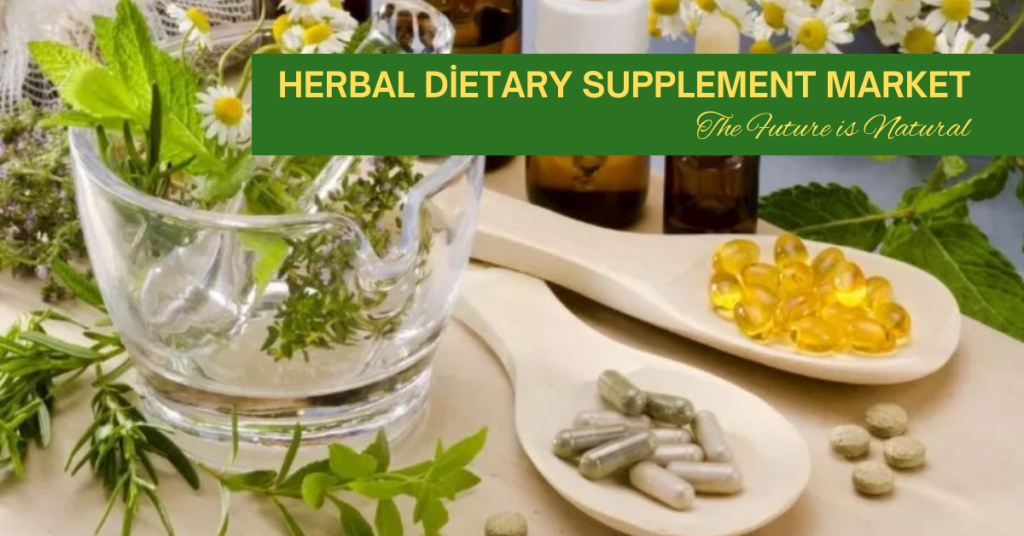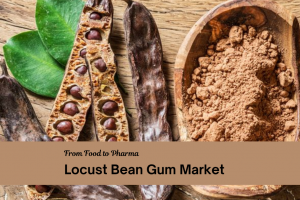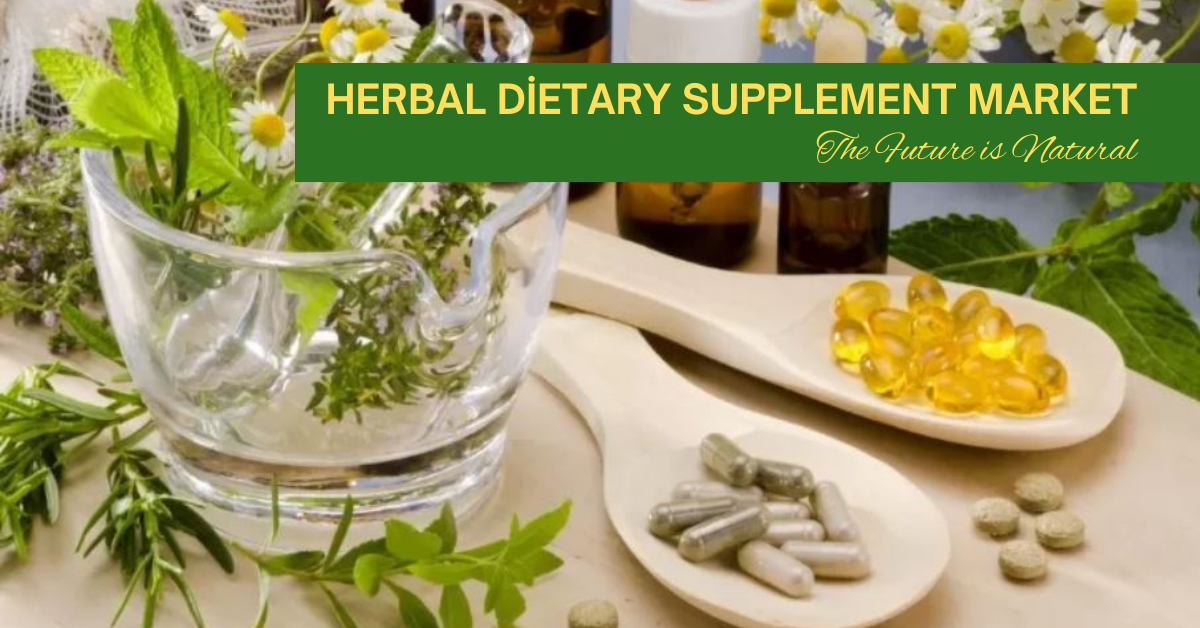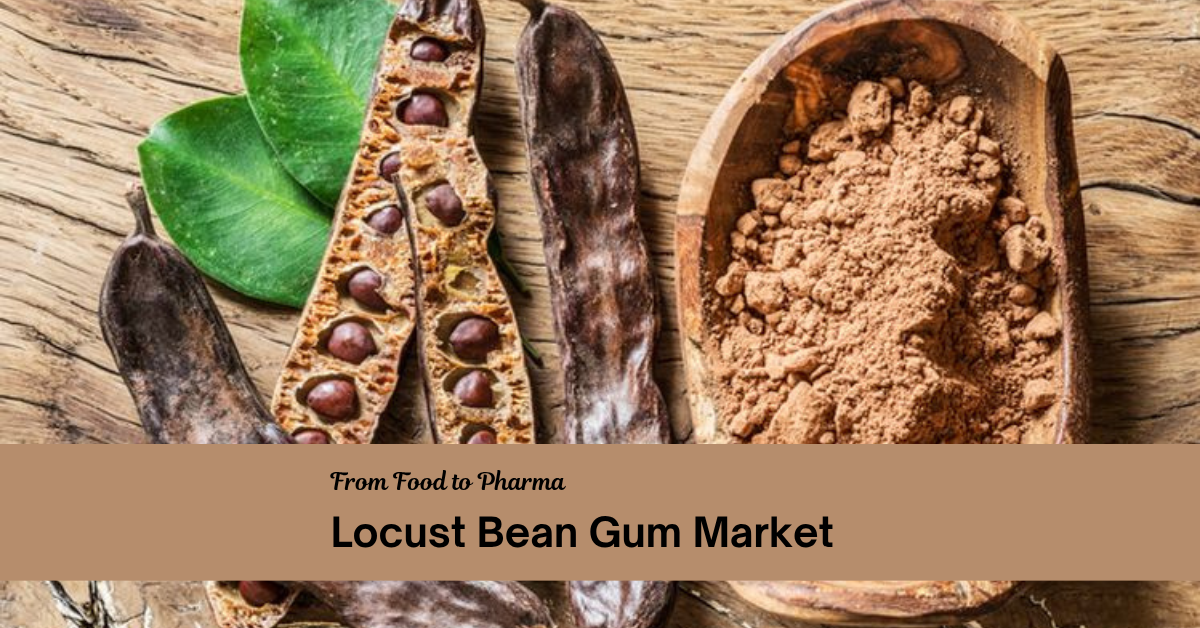
Market Overview
The Herbal Dietary Supplement Market is projected to expand from USD 12,622.52 million in 2024 to USD 21,687.8 million by 2032, growing at a compound annual growth rate (CAGR) of 7%. This robust growth reflects the increasing consumer awareness regarding health and wellness, alongside a global shift towards natural and organic products. Herbal supplements, derived from botanical sources, offer therapeutic benefits with minimal side effects, making them increasingly popular across various demographics.
Globally, the rising prevalence of chronic diseases and lifestyle disorders has encouraged consumers to adopt herbal dietary supplements as preventive and complementary healthcare solutions. Moreover, regulatory bodies in several countries are easing guidelines to support the integration of herbal supplements within healthcare frameworks, further enhancing market growth. The surge in demand for plant-based products, supported by scientific research validating their efficacy, underscores the relevance of this market in today’s health-conscious society.
Additionally, the trend towards personalized nutrition and natural remedies is strengthening the market’s importance. With expanding distribution channels, including e-commerce and specialty stores, accessibility to herbal supplements has improved worldwide. The market’s significance is heightened by increasing government initiatives promoting herbal medicine as part of public health strategies, especially in Asia Pacific regions, where traditional herbal usage has a deep-rooted history. In sum, the Herbal Dietary Supplement Market plays a critical role in global health and wellness, poised for sustained growth in the upcoming decade.
Read full report: https://www.credenceresearch.com/report/herbal-dietary-supplement-market
Market Drivers
Rising Consumer Health Awareness
The increasing awareness of preventive healthcare has propelled the demand for herbal dietary supplements. Consumers are shifting towards natural health solutions to avoid the side effects associated with synthetic drugs. Recent studies indicate a 30% rise in consumer preference for herbal products globally, driven by a growing health-conscious population.
Advancements in Botanical Research
Ongoing research and development have improved the efficacy and safety profiles of herbal supplements. Innovations in extraction and formulation technologies allow manufacturers to produce more potent and standardized products. For instance, a recent study demonstrated a 20% increase in bioavailability of herbal ingredients through advanced delivery systems, boosting consumer confidence.
Expanding Distribution Channels
The proliferation of online retail platforms and specialty health stores has enhanced market accessibility. E-commerce enables consumers worldwide to explore diverse herbal products conveniently. Market reports highlight that online sales of herbal supplements have surged by 40% in the last two years, contributing significantly to market growth.
Government Support and Regulatory Reforms
Regulatory agencies in key markets have introduced favorable policies to support the herbal supplement industry. Streamlined approval processes and recognition of traditional medicine have encouraged new product launches. For instance, the integration of herbal supplements into national health policies in Asia-Pacific countries is fostering widespread adoption and boosting market penetration.
Market Challenges
Regulatory Complexity
One of the major barriers is the varying regulatory frameworks across regions. Inconsistent standards for herbal supplement approval create challenges for manufacturers seeking global expansion. This fragmented regulatory environment often results in prolonged product launches and increased compliance costs.
Quality and Safety Concerns
Consumers remain cautious about the purity and safety of herbal supplements due to occasional contamination or adulteration incidents. These concerns have led to mistrust in some markets, which slows growth and demands stricter quality controls. Lack of standardized quality assurance protocols poses ongoing challenges.
Competitive Pressure from Synthetic Alternatives
Despite growing popularity, herbal supplements face intense competition from pharmaceutical products and synthetic nutraceuticals, which often have faster action and established efficacy profiles. This competition impacts market share and necessitates continuous innovation to maintain consumer interest.
Limited Scientific Validation
Though progress exists, some herbal supplements still lack comprehensive clinical evidence to substantiate their health claims fully. This gap affects regulatory approvals and consumer confidence, limiting broader adoption, particularly in developed markets with stringent evidence requirements.
Market Opportunity
Rising Demand for Personalized Nutrition
The growing trend of personalized health solutions offers significant opportunities for herbal dietary supplements tailored to individual needs. Custom formulations targeting specific health concerns such as immunity or digestion are gaining traction, presenting avenues for market expansion.
Untapped Emerging Markets
Regions like Latin America, Africa, and parts of Asia present substantial growth potential due to rising disposable incomes and increasing health awareness. Companies focusing on these untapped regions can capitalize on first-mover advantages and establish strong brand presence.
Integration with Digital Health Platforms
Technological integration with digital health tools, including wellness apps and telemedicine, opens new channels for consumer engagement and product personalization. Leveraging digital platforms can enhance customer loyalty and education about herbal supplement benefits.
Sustainability and Eco-Friendly Products
Consumers increasingly prefer eco-friendly and sustainably sourced herbal supplements. Brands emphasizing ethical sourcing and green manufacturing processes are well-positioned to attract environmentally conscious buyers, fueling future market growth.
Market Segmentation
Based on End User
- Home Use
- Clinics
- Hospitals
Based on Product Type
- Tablets & Capsules
- Powders
- Shakes
- Others
Based on Region
- North America
- U.S.
- Canada
- Mexico
- Europe
- UK
- France
- Germany
- Italy
- Spain
- Russia
- Belgium
- Netherlands
- Austria
- Sweden
- Poland
- Denmark
- Switzerland
- Rest of Europe
- Asia Pacific
- China
- Japan
- South Korea
- India
- Australia
- Thailand
- Indonesia
- Vietnam
- Malaysia
- Philippines
- Taiwan
- Rest of Asia Pacific
- Latin America
- Brazil
- Argentina
- Peru
- Chile
- Colombia
- Rest of Latin America
- Middle East & Africa
- GCC Countries
- South Africa
- Rest of the Middle East and Africa
Regional Analysis
North America holds a substantial share of the herbal dietary supplement market, driven by high consumer awareness and strong purchasing power. The U.S. leads this region with stringent regulations fostering product safety and innovation, while Canada and Mexico contribute through growing health-conscious populations and expanding retail channels. Recent market trends emphasize clean-label and organic supplements as key drivers here.
Europe represents a mature market with increasing demand for herbal supplements rooted in traditional medicinal practices, especially in countries like Germany, France, and the UK. Strict regulatory oversight ensures product quality, boosting consumer confidence. Northern European countries are notable for embracing herbal supplements as part of preventive healthcare, while Southern Europe is witnessing growth fueled by lifestyle changes.
Asia Pacific is the fastest-growing region due to the widespread acceptance of herbal remedies and integration with traditional medicine systems such as Ayurveda and Traditional Chinese Medicine. India and China dominate due to their rich herbal heritage, supported by government initiatives promoting herbal exports and domestic consumption. Southeast Asian nations are also witnessing rapid adoption driven by rising incomes and urbanization.
Latin America shows promising growth, with Brazil and Argentina emerging as key markets supported by increasing consumer inclination toward natural health products. Efforts to improve healthcare infrastructure and growing e-commerce platforms are fueling market expansion.
The Middle East & Africa region is gaining traction with GCC countries leading due to rising disposable incomes and demand for wellness products. South Africa and other African nations show potential due to increasing health awareness and evolving consumer lifestyles, though market penetration remains in nascent stages.
Top Companies
- Swanson Health Products, Inc. (Swander Pace Capital)
- Pure Essence Labs
- Herbalife International, Inc.
- Pharmavite LLC (Otsuka Pharmaceutical Co., Ltd.)
- Nature’s Way Products LLC (Dr. Willmar Schwabe GmbH & Co. KG)
- GNC Holdings, LLC (Harbin Pharmaceutical Group)
- Nature’s Sunshine Products, Inc.
- Amway Corporation
- Jarrow Formulas, Inc.
- Renew Life Formulas, LLC. (The Clorox Company)
Future Outlook
- The Herbal Dietary Supplement Market is expected to sustain double-digit growth driven by escalating consumer health consciousness globally.
- Technological advancements in extraction and formulation will enhance product efficacy and consumer appeal.
- Expansion into emerging markets will create new revenue streams and diversify market presence.
- Integration of AI and machine learning in personalized nutrition will revolutionize product offerings.
- Growing demand for clean-label and organic supplements will push manufacturers toward sustainable sourcing.
- E-commerce and digital marketing will become pivotal for market expansion and consumer engagement.
- Regulatory harmonization efforts globally will simplify product approvals and facilitate cross-border trade.
- Increased scientific validation through clinical trials will strengthen market credibility and adoption.
- Collaborations between herbal supplement companies and pharmaceutical firms will foster innovative hybrid products.
- Rising focus on mental health and immunity boosting supplements will create niche growth segments.
Read full report: https://www.credenceresearch.com/report/herbal-dietary-supplement-market











